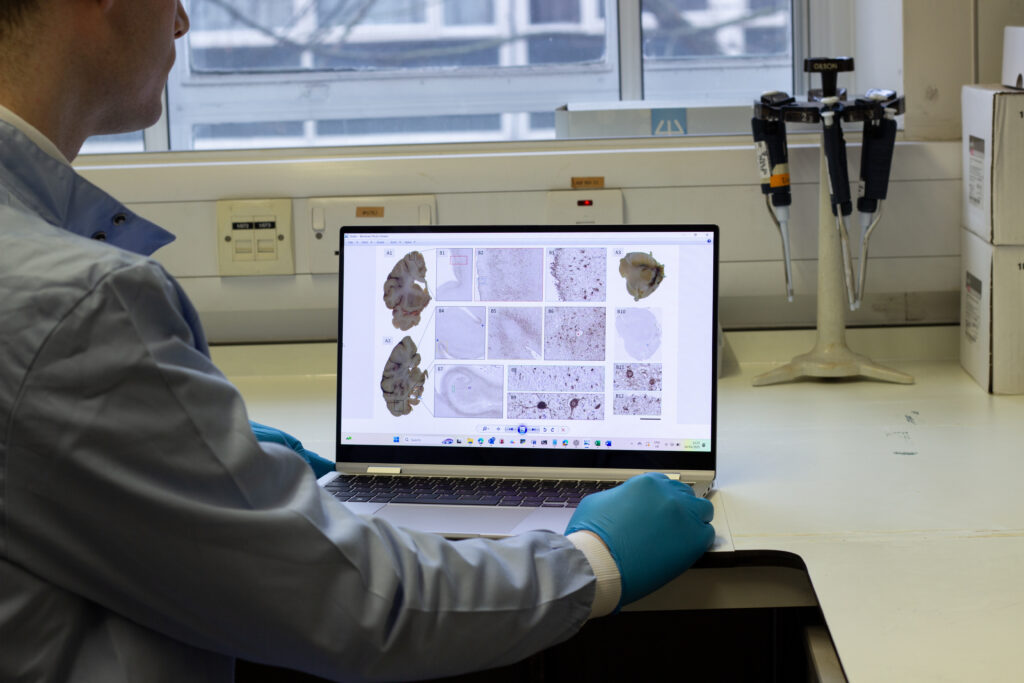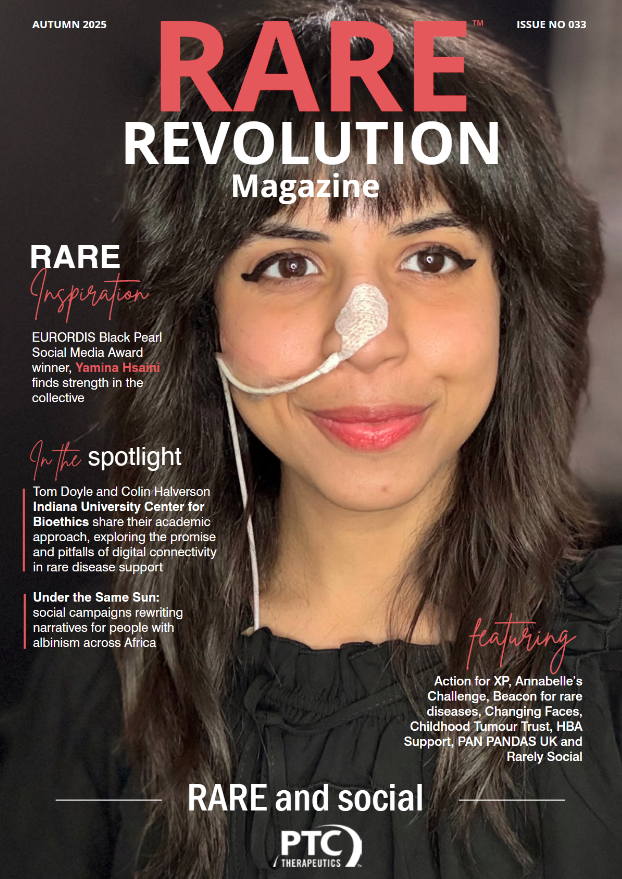PSPA announces small grant funding for five new research studies

UK charity PSPA has announced it has approved funding for five new research studies under its ‘Small Grants’ scheme, ultimately to help improve the lives of people living with rare brain diseases. This year the charity has increased its funding under this scheme to £10,000 per grant, to help better understand Progressive Supranuclear Palsy (PSP) and Corticobasal Degeneration (CBD).
PSP & CBD are rare neurodegenerative conditions which affect approximately 10,000 people in the UK.
These life-limiting conditions, which are caused by an abnormal build-up of a protein called tau, over time lead to problems with balance, speech, vision, mobility and swallowing. There are currently no treatments available to slow progression, nor a cure.
Following a review process with PSPA’s patient involvement group and Research Committee, five new studies have been granted funding and will begin this year.


The studies selected for the grants include:
Dr Negin Holland, a Neurologist and Researcher at the University of Cambridge, who will study variations in brain shrinkage, blood work such as inflammation and genetics, the impact of socioeconomic status and gender on survival in PSP & CBS. Dr Holland and her team hope that with a better understanding of predictors of survival they can better prioritise targets for new treatments.
Dr Ruth Lewis-Morton, a Clinical Psychologist from University Hospital Llandough, is examining the needs of care-partners who are caring for someone with PSP or CBD. There has been limited research on understanding the needs of care-partners. Through this study, Dr Lewis-Morton hopes they will be able to share information and make recommendations about what care partners need to improve their quality of life, as well as the quality of life of the person they’re caring for.
Davi Schramm Vontobel, a PhD student at the University of Cambridge, is aiming to better understand how brain inflammation involving microglia and astrocytes relates to the build-up of toxic tau in the brain at different stages of PSP, and their influence on each other over time. Dr Schramm Vontobel will also study the different types of brain cells that are involved in inflammation to see how they might contribute to disease progression. This project could help identify specific cells or pathways to target with new treatments.
Dr Boyd Ghosh, a Neurologist at University Hospital Southampton, is going to examine a fracture risk in atypical Parkinson syndromes. Dr Ghosh and his team believe that people with PSP or CBD have an increased risk of fractures which is not adequately assessed or treated by current clinical systems. They hope they will be able to suggest a more robust risk score system. In time this could provide evidence which could reduce fractures in people with PSP & CBD therefore prolonging independence and improving quality of life.
Dr William Scotton, a Neurology Consultant at New Cross Hospital in Wolverhampton, will examine the impact of ethnicity on PSP & CBD. People from populations other than white Europeans have been underrepresented in PSP & CBD research meaning we don’t fully understand how the diseases affect people from other backgrounds. There may be important differences in lifestyle, environment and genetics that contribute to the disease. By studying a diverse patient cohort and creating a registry in the West Midlands, this research could support more equitable and targeted interventions and enhance clinical trial diversity.
PSPA’s Chair of the Research Committee, Professor Karen Morrison, says of the funding:
“We are pleased to increase our commitment to research into PSP & CBD, with the provision of pump-priming funding for five new research studies. The investment, which totals £32,595, will allow the studies to begin this year, and spans key objectives from our research strategy, including more accurate diagnosis, better coordination of care, and improving quality of life.
“Despite having similar prevalence to better known conditions like Motor Neurone Disease, research into PSP & CBD is still very much underfunded. We anticipate that these grants, alongside our larger grants that we will be launching later this spring as part of our Understood Research Appeal, will improve our understanding of PSP & CBD, and increase the interest of researchers in developing impactful programmes to improve the lives of those living with these currently incurable neurological disorders.”
Progressive Supranuclear Palsy (PSP) and Corticobasal Degeneration (CBD) are two rare neuro-degenerative diseases.
They are caused by the loss of neurons in certain parts of the brain. Over time, this leads to difficulties with balance, mobility, speech, vision, swallowing and cognition.
Both conditions are life limiting. There is no treatment and no cure.
Currently, around 60% of people living with either disease, are initially misdiagnosed with other conditions including Parkinson’s, stroke and depression.
PSPA is the only UK charity dedicated to creating a better future for every affected by PSP & CBD.
We will do this by:
• Providing information and support to enable families living with PSP & CBD to live their best possible lives
• Improving the quality of life for people living with the condition via research and awareness raising
• Putting the voice of the PSP & CBD community at the heart of what we do.
For more information please visit www.pspassociation.org.uk


